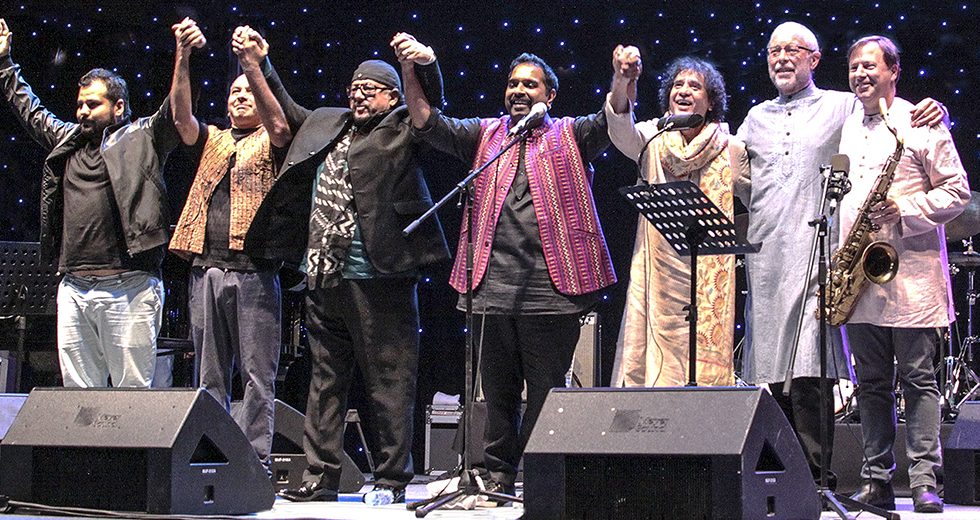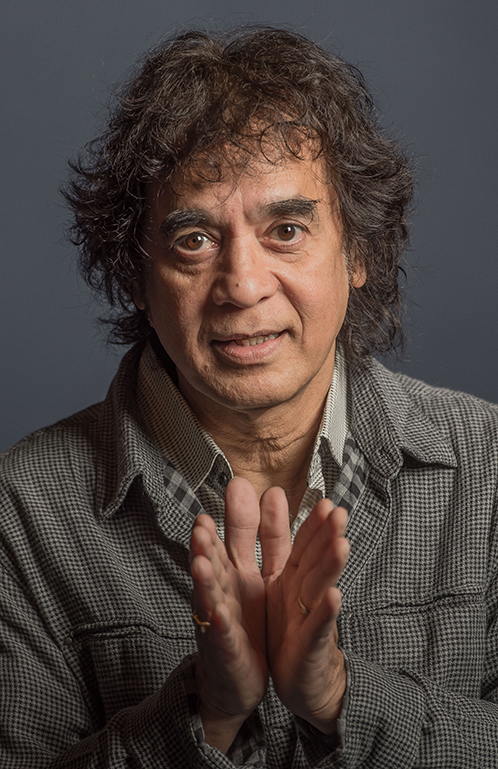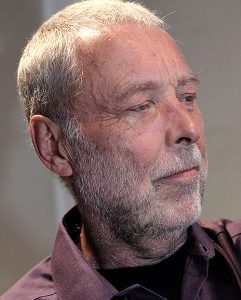
For many decades, Indian music has influenced jazz and pop artists, perhaps most famously saxophonist John Coltrane, guitarist John McLaughlin, the Beatles’ George Harrison and the Grateful Dead’s Mickey Hart. But with jazz, in particular, the reverse is also true. When the quintessentially American musical style was introduced to India through Bollywood musicals in the 1930s and ’40s, an artistic revolution began that continues to this day.

Zakir Hussain | ©Paul Joseph/IMG
Internationally renowned composer, educator and classical tabla superstar Zakir Hussain is one of its leaders. Together with his 2½-year-old ensemble Crosscurrents — consisting of Grammy-winning bassist Dave Holland, saxophonist Chris Potter, vocalist Shankar Mahadevan, keyboardist Louiz Banks, guitarist Sanjay Divecha and drummer Gino Banks — Hussain plays a handful of dates each year around the world. This season, the group stops at Symphony Center for an SCP Jazz concert May 1.
While Indian music and jazz are very different rhythmically and harmonically, Hussain says, they’re complementary in that both strongly encourage improvisation. “That ability allows us to be spontaneous with each other,” Hussain says. “And that’s why Indian musicians and jazz musicians can work well together, because they’re conditioned to sync on the fly.”
That comes from knowing each other on a personal as well as a musical level, Hussain says. “It’s gotten to the point where everybody understands each other’s nods and winks and smiles and eyebrows going up and can decipher it to mean whatever that person is trying to say. Communication has become very smooth and seamless onstage. In fact, we don’t even plan a set; we just go on stage with, ‘OK, we’ll start with this song and see how that goes and what comes out of it.’ Even within the songs we’re changing, we have an arrangement but we don’t necessarily follow it.”

Dave Holland | ©Ulli Gruber
Such an unstructured approach requires lots of trust. If there’s no trust, Hussain says, there’s no reason to be onstage with each other, because you’re apt to “fall flat on your face and make a fool of yourself.”
Holland credits Hussain’s “intuitive sense of the music and where it’s going” for keeping things on track. “I feel like he’s almost reading my mind sometimes, and he thinks of [an] idea before I do.”
Besides trust, Holland says, chemistry is crucial to any kind of musicmaking — and Crosscurrents has perfected the formula. It’s part of what allows the group to improvise with such creative abandon. “It’s a magical thing, improvisation at its best,” Holland says. “It combines the best of everything: the intellectual and structural things, the emotion and the intuitive spirit of what happens on stage as well. When it’s happening, it’s one of the highest forms of expression we have as human beings — when we come together, and it’s a selfless kind of feeling. Where you lose yourself in the music, and you’re serving the music and each other.”
That each Crosscurrents musician brings something unique to the table while being open to the ideas and influences of others only enhances their collaborative efforts.
“It’s very important that you have that confidence inside of yourself and that you’re deeply rooted in your tradition,” Hussain says. “But at the same time, you’re not trying to insist that that’s all you’re going to be.”
Mike Thomas, a Chicago-based writer, is the author of the books You Might Remember Me: The Life and Times of Phil Hartman and Second City Unscripted: Revolution and Revelation at the World-Famous Comedy Theater.